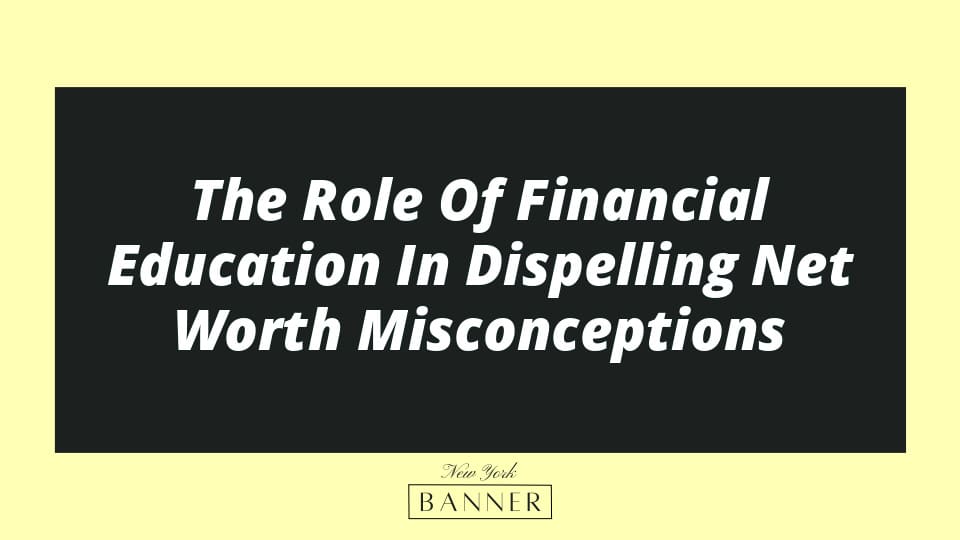Net worth measures an individual’s financial health and stability, but many misconceptions surround this concept. These misconceptions can lead to confusion and misinformation, which can, in turn, lead to poor financial decisions. In this article, we will explore the role of financial education in dispelling net worth misconceptions and provide ten tips for improving financial literacy.
What is Financial Education?
Financial education is the process of learning how to manage money effectively. This includes understanding budgeting, saving, investing, and debt management concepts. Financial education can help individuals make informed financial decisions and achieve long-term financial stability.
The Role of Financial Education in Dispelling Net Worth Misconceptions
Financial education can play a critical role in dispelling net worth misconceptions. Financial education can help individuals make informed financial decisions and avoid common misconceptions by providing them with a better understanding of net worth and its components.
For example, financial education can help individuals understand that net worth is not just about income but also includes assets and liabilities. It can also help individuals understand the impact of lifestyle inflation on net worth and the importance of diversifying investments to minimize risk.
10 Tips for Improving Financial Literacy
1. Start Early
Financial education should start early, ideally in childhood. Encouraging children to save money and understand fundamental financial concepts can help prepare them for long-term financial success.
2. Take Advantage of Online Resources
Many online resources are available for improving financial literacy, including blogs, podcasts, and online courses. Take advantage of these resources to learn more about managing money effectively.
3. Attend Financial Education Workshops
Many organizations offer financial education workshops and seminars. Attend these events to learn more about managing money effectively and dispelling net worth misconceptions.
4. Read Books on Personal Finance
There are many books available on personal finance that can help individuals improve their financial literacy. Consider reading books such as “The Total Money Makeover” by Dave Ramsey or “The Intelligent Investor” by Benjamin Graham.
5. Work with a Financial Advisor
Working with a financial advisor can significantly improve financial literacy and dispel net worth misconceptions. A financial advisor can provide guidance and expertise on investments, debt management, and other financial matters.
You may also like The Impact Of Lifestyle Inflation On Net Worth Misconceptions. Check out the article here: https://thenybanner.com/index.php/2023/05/13/the-impact-of-lifestyle-inflation-on-net-worth-misconceptions/
6. Take a Personal Finance Course
Many colleges and universities offer personal finance courses. Consider taking a course to learn more about managing money effectively and dispelling net worth misconceptions.
7. Attend Seminars and Conferences
Attending seminars and conferences focused on personal finance can be a great way to improve financial literacy and stay up-to-date on the latest trends and best practices.
8. Join a Financial Education Group
Joining a financial education group can provide individuals with a community of like-minded individuals focused on improving their financial literacy. This can be a great way to share ideas and learn from others.
9. Use Financial Management Tools
Many financial management tools can help individuals track their expenses, create a budget, and manage their investments. Use tools like Mint or Personal Capital to improve financial literacy and manage money effectively.
10. Practice Good Financial Habits
Practicing good financial habits such as saving money, avoiding debt, and investing in assets that increase net worth can help individuals improve their financial literacy and achieve long-term financial stability.
In conclusion, financial education plays a critical role in dispelling net worth misconceptions and improving financial literacy. By starting early, taking advantage of online resources, attending financial education workshops, reading books on personal finance, working with a financial advisor, taking a personal finance course, attending seminars and conferences, joining a financial education group, using financial management tools, and practicing good financial habits, individuals can improve their financial literacy and achieve long-term financial success.

